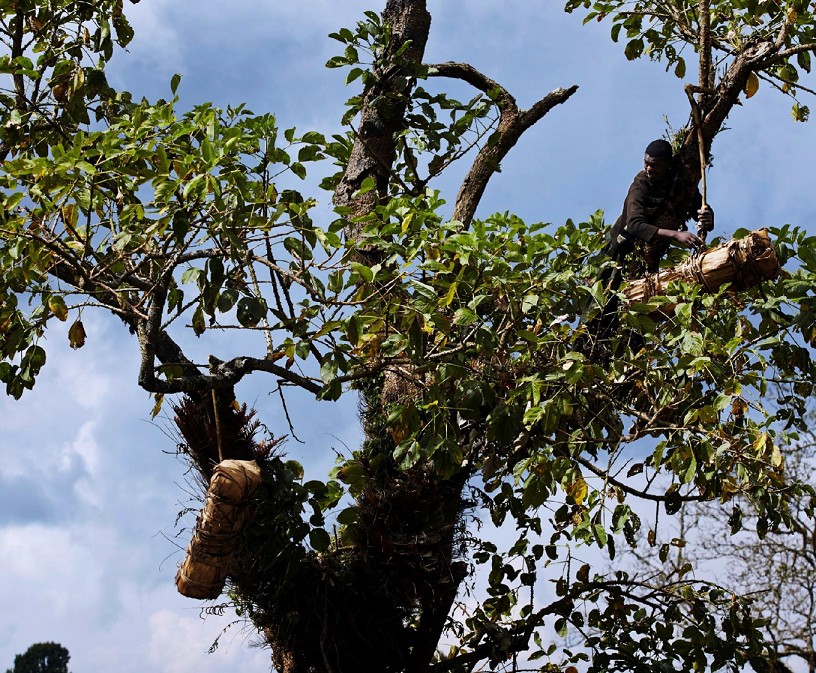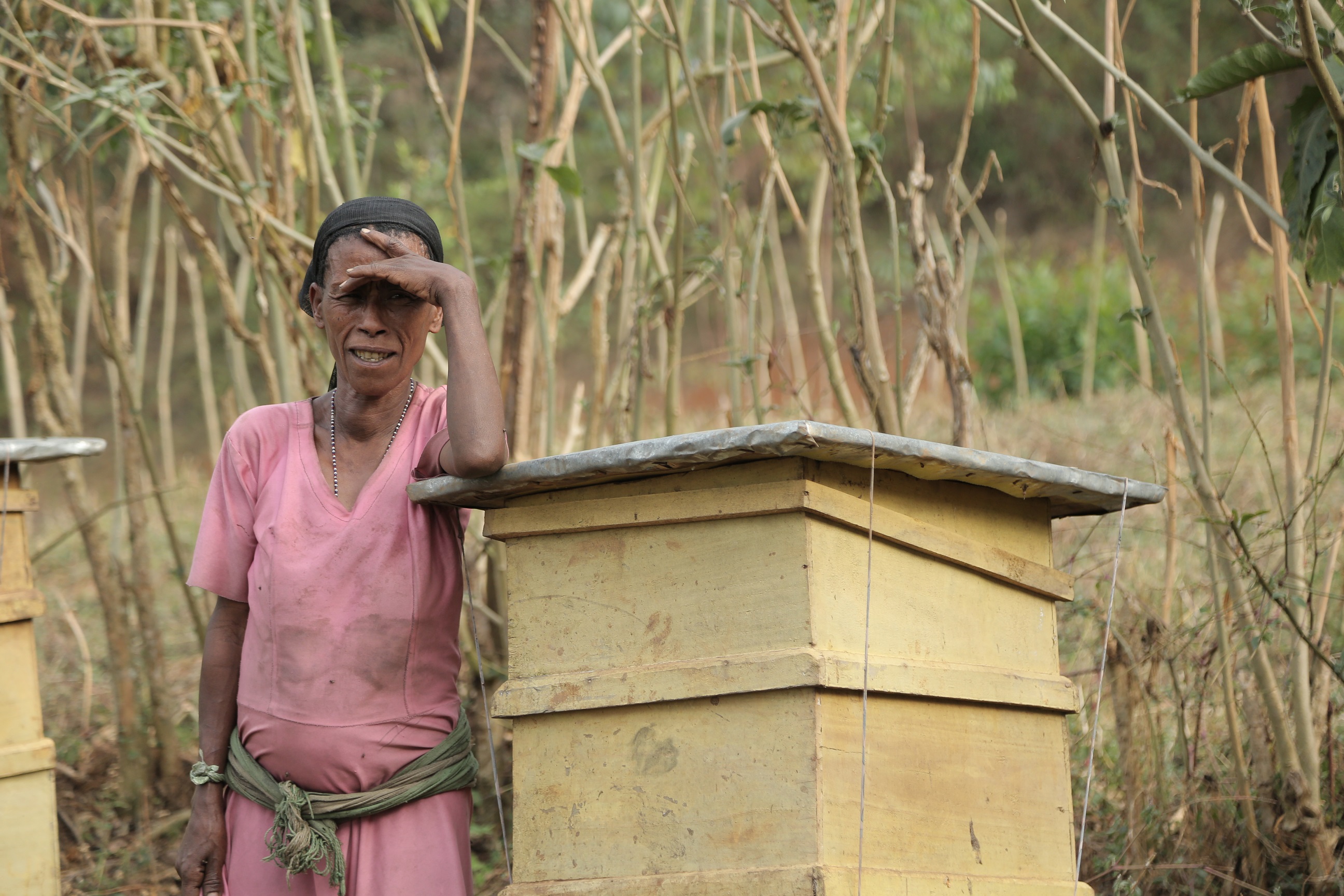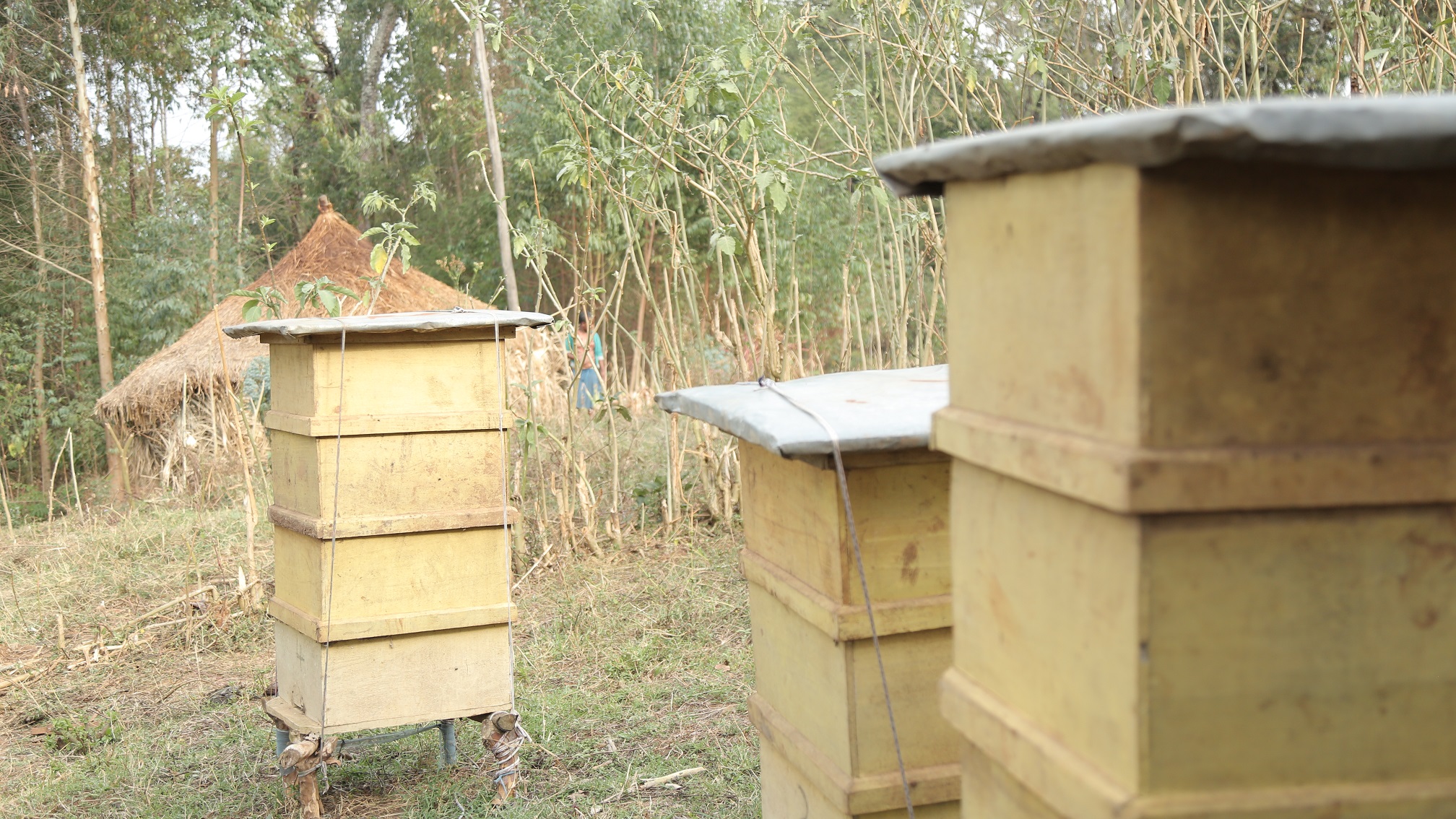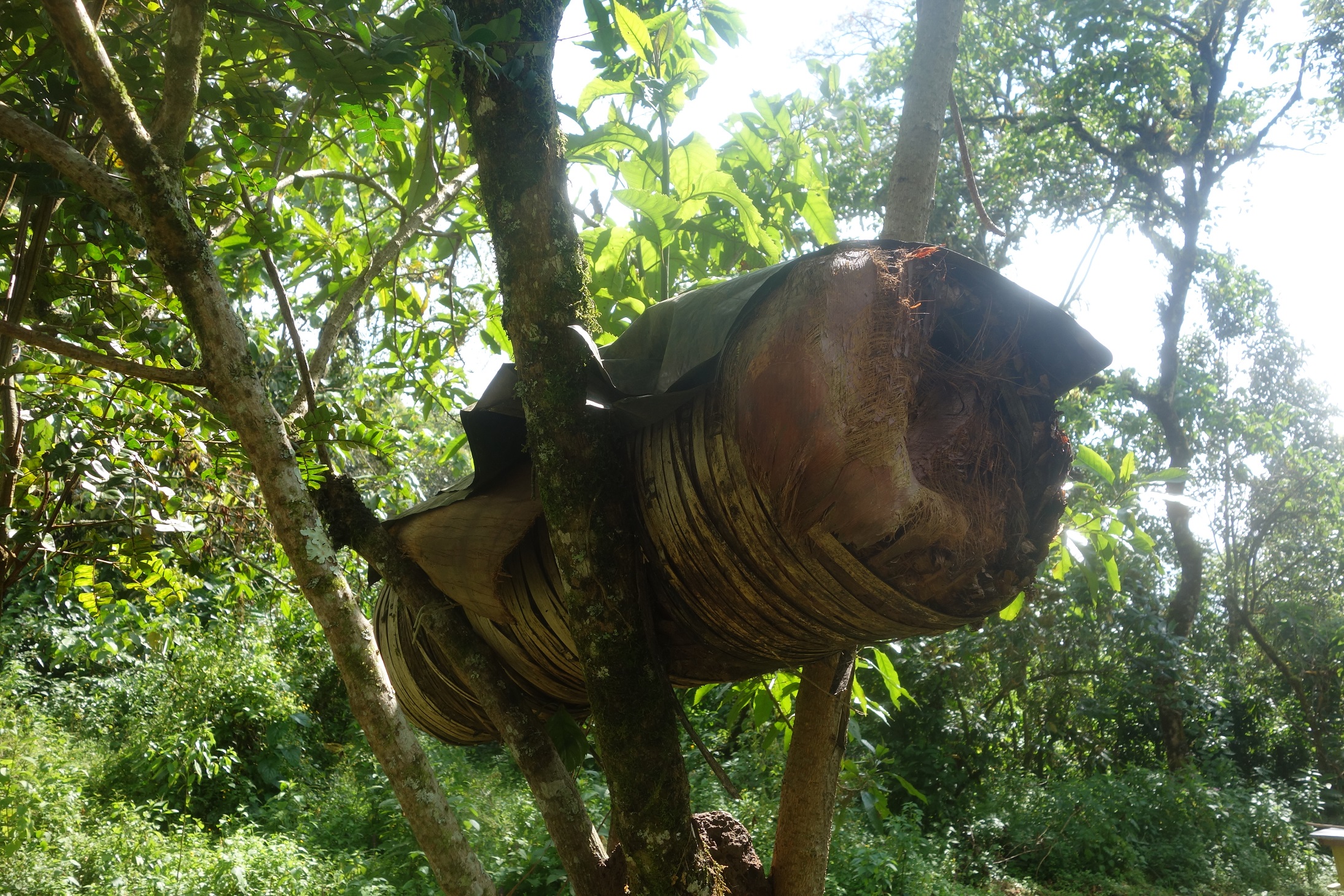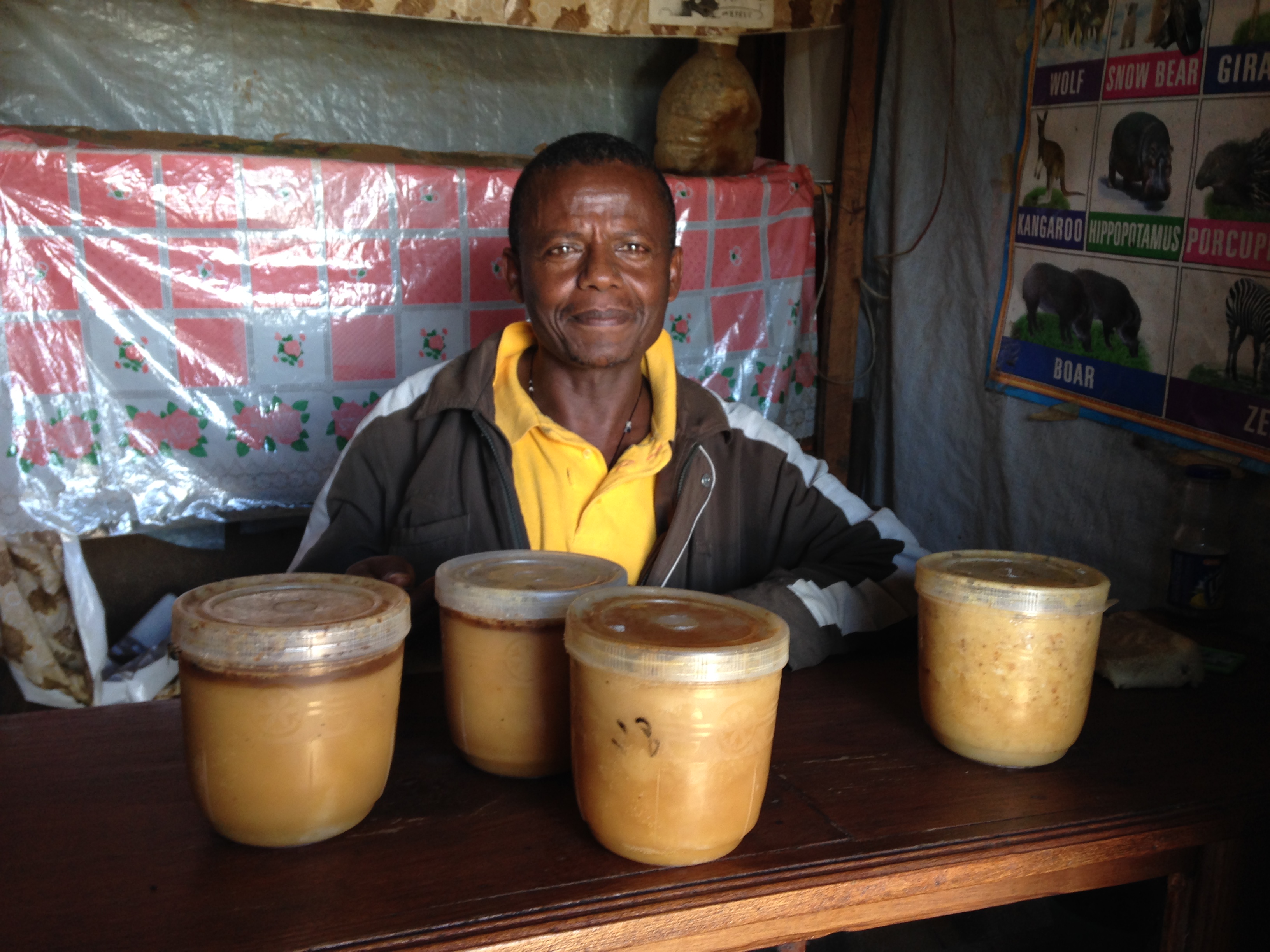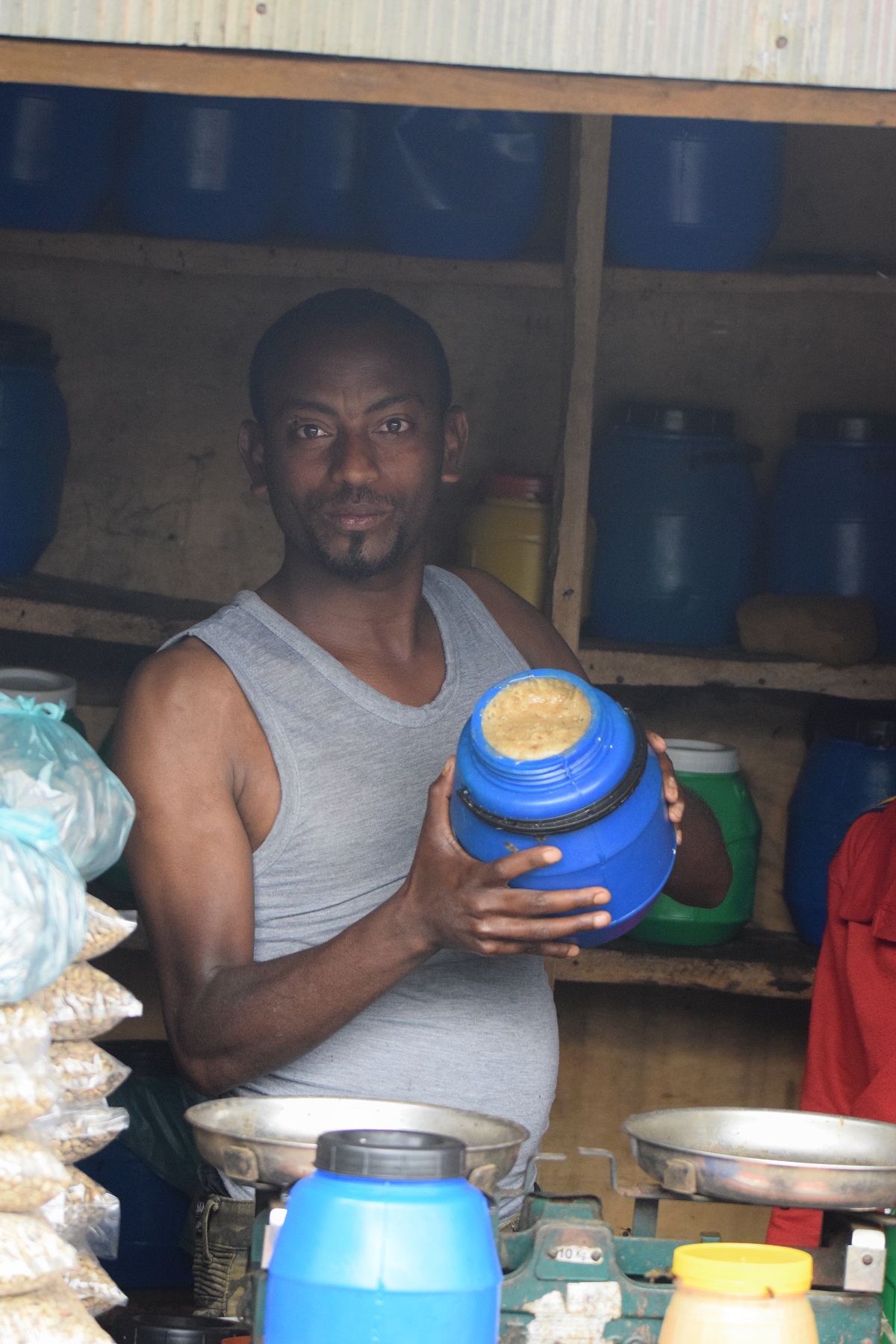Desarrollar una cadena de valor para la exportación de miel
Colmenas de abejas silvestres en los bosques
Tuchel & Sohn
Miembro de una cooperativa de miel con una colmena moderna
GIZ/Ethiopia
Colmenas modernas
GIZ/Ethiopia
Colmena tradicional
GIZ/Ethiopia
Venta de miel
GIZ/Ethiopia
Miel en envases de plástico
GIZ/Ethiopia
Las cadenas de valor de exportación de la miel se han desarrollado de acuerdo con el siguiente planteamiento por etapas:
- Selección de cooperativas
- Formación de los agricultores modelo en gestión de la calidad antes y después de la cosecha, certificación ecológica y sistema de control interno, sistema de trazabilidad para cumplir los parámetros de calidad de la UE.
- Suministro de equipos de calidad alimentaria y de mejora de la calidad (equipos de envasado y procesamiento, lámparas solares, bolsas de miel de calidad alimentaria, prensas, etc.).
- Proporcionar conocimientos técnicos de Alemania a los pequeños productores, sus cooperativas y sindicatos en el procesamiento de la miel y el cumplimiento de los requisitos de exportación (por ejemplo, control del contenido de agua de la miel).
- Ayudar a los sindicatos a obtener una licencia de exportación, un certificado ecológico y un certificado de gestión de riesgos, además de otros requisitos necesarios del gobierno etíope para llevar a cabo el proceso de exportación.
- Comunicación a los veterinarios y otras autoridades de inspección a nivel de la UE por parte de los socios alemanes para permitir la futura importación de miel etíope
- Supervisar y orientar constantemente a los sindicatos de miel, laboratorios y autoridades durante el procedimiento de exportación
- Establecer un contacto con la naviera por parte de los socios alemanes y preparar la logística de exportación de la miel
- Confianza entre los sindicatos de agricultores locales y las empresas y asesores internacionales
- Clara demanda de miel de alta calidad por parte del sector empresarial en Alemania
- Mayor demanda de miel ecológica en Europa debido a la disminución de las exportaciones de América Latina y Asia, ya que la producción de miel satisface cada vez más la demanda interna.
- Restricciones de uso de las zonas tampón de la RB según la UNESCO
- Los pequeños propietarios locales que participan en grupos de gestión forestal participativa (GFP) reciben derechos oficiales de uso de los bosques y acceso directo a los productos.
- La interacción entre la experiencia local y los conocimientos técnicos internacionales dio como resultado una exitosa creación de cadenas de valor. Fue crucial impartir una formación muy detallada a los productores, sobre todo en materia de postratamiento, para conseguir una miel de alta calidad.
- Los precios locales de la miel son elevados, lo que dificulta las negociaciones con el comprador internacional.
- La propiedad de toda la "cadena de valor", desde el productor de base hasta la carga de los sacos de café en un buque para el mercado de ultramar, pertenece a los productores y a sus estructuras representativas. Se trata de un ejemplo único en el que las estructuras de base se han convertido en socios comerciales globales.
- Cumplir las normas de calidad de la UE exige controles constantes de los métodos de producción de miel. La mayoría de los productores cumplieron las normas de calidad y entregaron 42 Mt de miel. El resto de la miel se ha vendido a comerciantes locales para el mercado local u otros fines, con lo que se han obtenido ingresos adicionales, aunque inferiores a los de la miel exportada.
